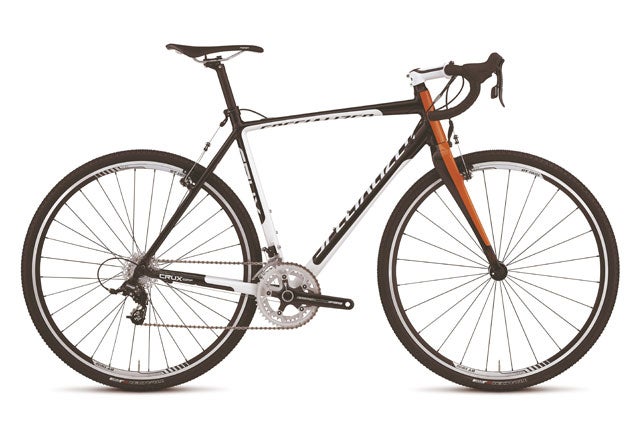Picking the right commuter often depends on where you live. As a resident of the Pacific Northwest, I look for a bike with the following features:
1. Corrosion-resistant frame so it can withstand puddle jumping.
2. Lower gearing than a recreational bike, to spare your legs and accommodate the extra weight of a pack with clothes or work-related gear.
3. Fenders and fatter tires. Bigger tires get more traction in wet weather and offer better resistance to pinch flats.
Cyclocross bikes fit most of those requirements. Many are made with aluminum frames that do pretty well in wet conditions, and they usually have plenty of clearance for fenders since they’re built to run with big tires. And because cyclocross races often involve hills, ‘cross bikes run compact cranks for a little extra push.
For several years I’ve ridden a as my main commuter, and I’ve been very happy with it. It’s comfortable, sturdy, and accepts all the wet-weather add ons I could want. Fuji gave the Cross Pro an aluminum frame, carbon fork, and high-quality SRAM Rival components. Performance Bike has it advertised for $2,250, and you might be able to find it on sale.
Specialized also bolts together a good-looking cross bike called the . It runs on an aluminum alloy frame, carbon fork, and comes with internal cable routing. It’s also a bit cheaper at $1,800.
The aggressive geometry of a cross bike doesn’t work for everyone. If you think you might want a more upright riding position, check out Marin’s ($1,000). It accepts fenders and racks and comes with a smooth Shimano drivetrain, but still retains the frame (and performance) of a traditional road bike.
Another solid choice is the : It’s light and speedy and the price ($629) is painless.
—Doug Gantenbein


